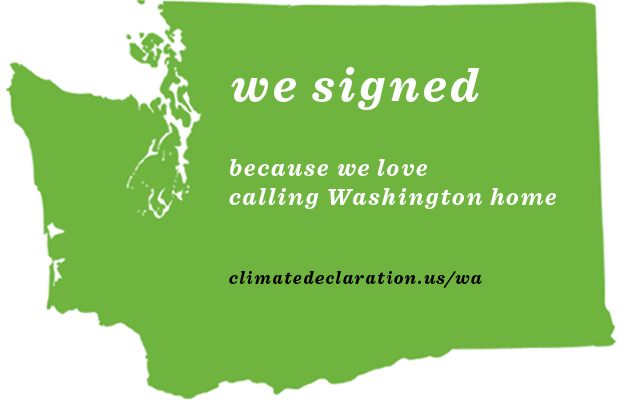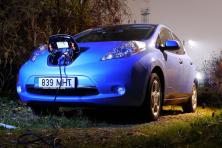The US’s leading group of large businesses concerned about climate and clean energy action today asked Washington State leaders to adopt a Clean Fuel Standard. The coalition, Business for Innovative Climate and Energy Policy (BICEP), comprises 34 of the most respected brands in the country, including Washington-based Starbucks and Vulcan. BICEP is a project of Ceres, a national non-profit that mobilizes businesses, investors and others in support of sustainability leadership. The BICEP companies all believe that economic growth and action on climate and clean energy go hand in hand, and that the actions required to address global warming create one of the greatest opportunities of the 21st Century.
Today’s BICEP letter to Washington leaders followed an earlier letter supporting the successful campaign to implement the Clean Fuel program in Oregon. BICEP also joins the dozens of Washington businesses who are supporting cleaner transportation choices through the Coalition for Clean Fuels Jobs.
The BICEP companies recognize that strong, durable policy is critical to creating cleaner choices for transportation, and accelerating the transition from oil. The letter states:
A Clean Fuel Standard is business friendly and designed as a performance based standard using flexible market based mechanisms that allow regulated parties to select the most cost effective pathways to achieve compliance. We believe that it is in our economic interest to reduce our dependence on oil, and a Clean Fuel Standard is the most effective way to do so.
The letter also notes that the Clean Fuel Standard is working successfully in California, BC and other places, and is creating more choices at minimal or no cost to consumers. One study estimates that the standard will result in net savings of $1.4 to 4.8 billion by 2020 in California alone, due to reduced air pollution and increased energy choices. Adopting this standard in Washington will create a regional market along the West Coast, and will accelerate investments in cleaner technologies that will benefit companies and consumers looking for more choices at the pump.
This letter is particularly timely for two reasons. The Washington State Department of Ecology recently accepted comments on a draft Clean Fuel rule, and the policy has become a contentious item in the transportation funding package being considered by the Washington State Legislature. The version of the transportation budget passed by the state Senate contained a “poison pill” which would eliminate funding for transit if the state moves forward with a Clean Fuel Standard. Fortunately, the state House passed a clean version of the transportation funding package. Large businesses have been strong supporters of necessary investments in our transportation and transit infrastructure. The BICEP letter makes it clear that many major businesses recognize that we shouldn’t set up false choices between these investments and climate action.
It is also timely because Mindy Lubber, president and founder of Ceres, will be the keynote speaker at Climate Solutions’ annual breakfast on May 4 in Seattle. Ceres has been a terrific partner in our outreach with the business community and investors, including joint efforts on the Washington and Oregon Business Climate Declarations, which now count nearly 500 companies joining the call for state and regional action on climate. We hope that you will join us on May 4 to celebrate our collective efforts to mobilize business leadership toward a clean energy future.




